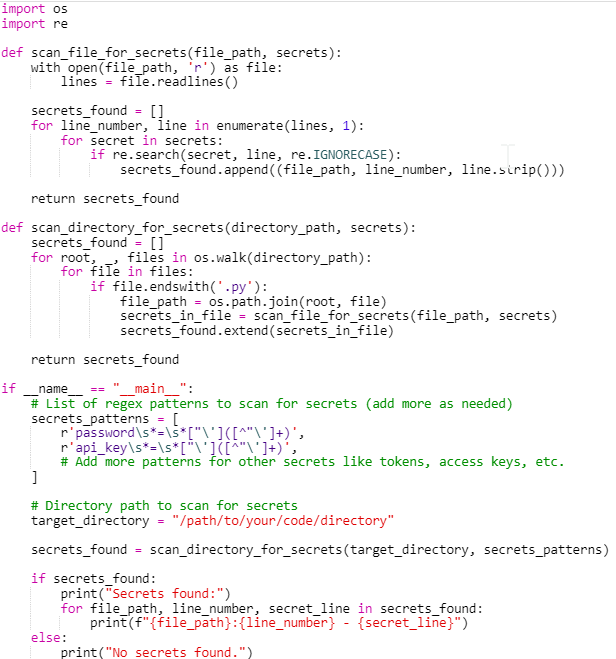
Code Secret Scanning in DevSecops Using Python
Vartul Goyal
Securing Company Infrastructure | Expert in ASPM | Automating Remediation with AI
Code Secret Scanning in DevSecops Using Python
Code secret scanning in DevSecOps involves searching for sensitive information, such as passwords, API keys, and other secrets, in the source code to prevent them from being inadvertently exposed. Python can be used to create a simple secret scanning tool. Below is a code approach for a basic secret scanner in Python:
In this code, we have a function scan_file_for_secrets() that takes a file path and a list of secret regex patterns to search for secrets in the file. The scan_directory_for_secrets() function recursively scans all Python files in the specified directory for secrets using the scan_file_for_secrets() function. The secrets are represented by regex patterns, and you can add more patterns based on your specific needs.
When you run the script, it will search for secrets in the provided directory and print the file path, line number, and the line containing the secret if any secrets are found.
Please note that this is a basic example, and in real-world scenarios, you may want to use more sophisticated tools and techniques for secret scanning, such as integrating with security scanning tools like bandit or commercial tools that are specifically designed for secret detection. Additionally, make sure to handle secret storage and access securely in your development environment and CI/CD pipelines.